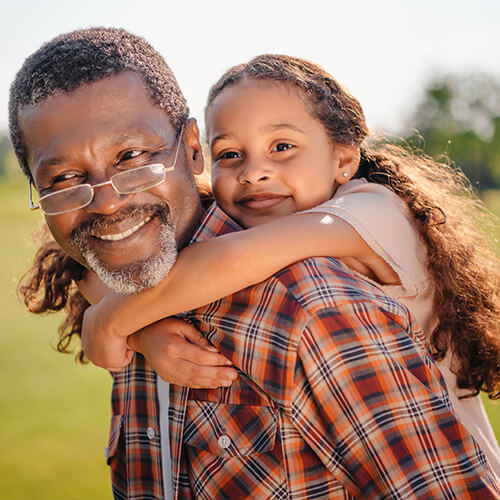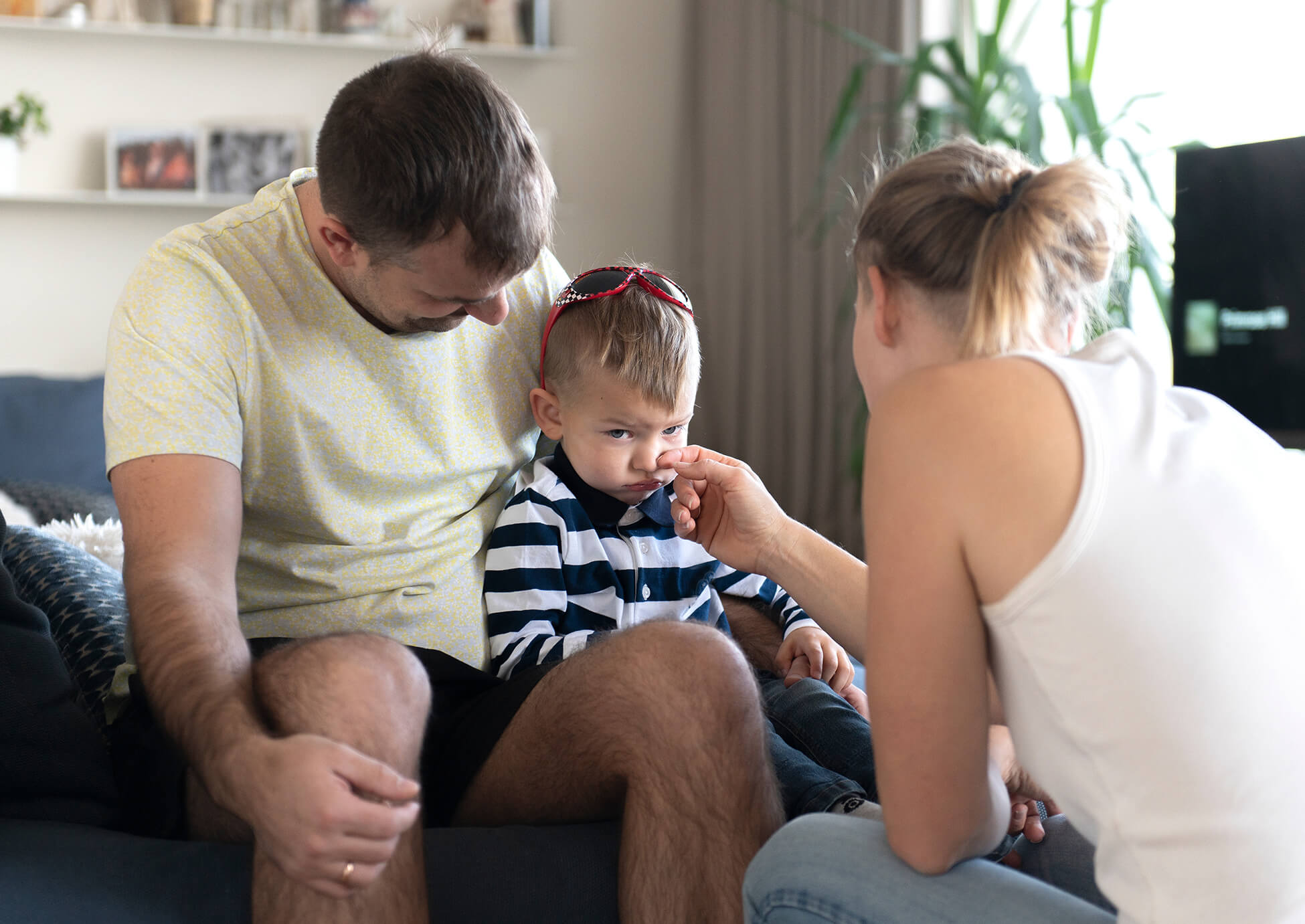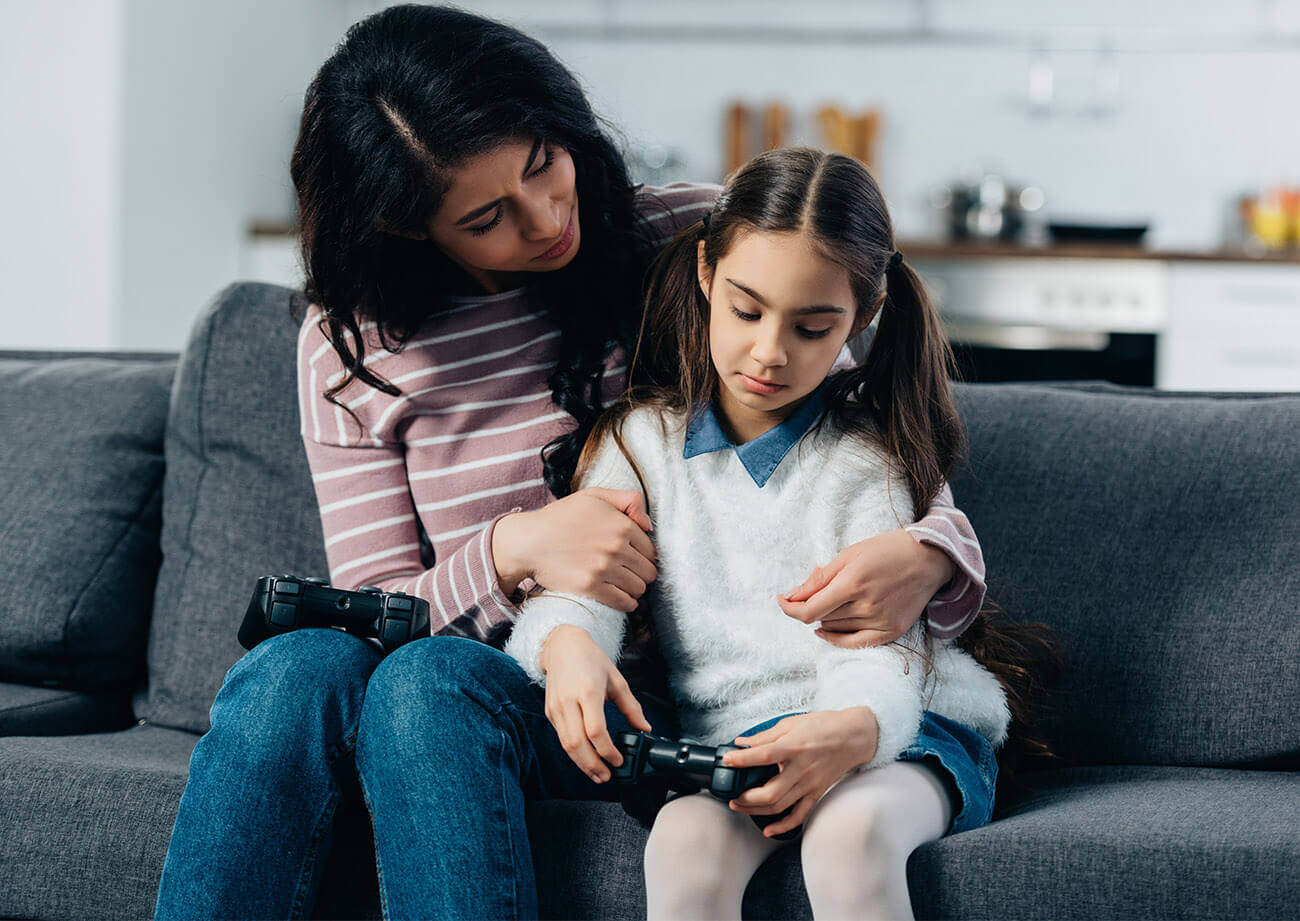Take the ACEs Quiz
What to Know Before You Take the Quiz
Researchers determined that 10 specific traumatic childhood experiences, or ACEs, could be linked to a higher likelihood of health challenges later in life, and that the likelihood of these negative effects increased with the number of “ACEs” a child experienced.

The 10 ACEs were defined as the following childhood experiences:
- Physical, sexual or verbal abuse
- Physical or emotional neglect
- Separation or divorce
- A family member with mental illness
- A family member addicted to drugs or alcohol
- A family member who is in prison
- Witnessing a parent being abused
Still, there are variables this quiz doesn’t account for – including stressors outside of the home, as well as the important role positive influences play on buffering the effects of trauma.
More information about the quiz, its limitations, and how it can be used as a tool for building resilience as well as positive parenting strategies can be found below the quiz.
For each “yes” answer, add 1. The total number at the end is your cumulative number of ACEs.
Before your 18th birthday:
#1. Did a parent or other adult in the household often or very often… a) Swear at you, insult you, put you down, or humiliate you? or b) Act in a way that made you afraid that you might be physically hurt?
#2. Did a parent or other adult in the household often or very often… a) Push, grab, slap, or throw something at you? or b) Ever hit you so hard that you had marks or were injured?
#3. Did an adult or person at least 5 years older than you ever… a) Touch or fondle you or have you touch their body in a sexual way? or b) Attempt or actually have oral, anal, or vaginal intercourse with you?
#4. Did you often or very often feel that … a) No one in your family loved you or thought you were important or special? or b) Your family didn’t look out for each other, feel close to each other, or support each other?
#5. Did you often or very often feel that … a) You didn’t have enough to eat, had to wear dirty clothes, and had no one to protect you? or b) Your parents were too drunk or high to take care of you or take you to the doctor if you needed it?
#6. Were your parents ever separated or divorced?
#7. Was your parent/caregiver: a) Often or very often pushed, grabbed, slapped or had something thrown at him/her? or b) Sometimes, often, or very often kicked, bitten, hit with a fist, or hit with something hard? or c) Ever repeatedly hit over at least a few minutes or threatened with a gun or knife?
#8. Did you live with anyone who was a problem drinker or alcoholic, or who used street drugs?
#9. Was a household member depressed or mentally ill, or did a household member attempt suicide?
#10. Did a household member go to prison?
Results
Your ACES Score
Your ACES Score
Download your free copy of Daily Tips to start reducing ACEs in your home today!
Frequently Asked Questions
What does your ACEs score mean?
The quiz score is based on ten types of childhood trauma measured in the original ACEs study.
Five are personal: physical abuse, verbal abuse, sexual abuse, physical neglect, and emotional neglect.
Five are related to other family members: a parent who’s an alcoholic, a parent who’s a victim of domestic violence, a family member in jail, a family member diagnosed with a mental illness, and the disappearance of a parent through divorce, death or abandonment.
You get one point for each type of trauma. The higher your ACE score, the higher your risk of disease, social and emotional problems as an adult.


What doesn’t the quiz take into account?
First, there are many experiences that could be traumatic for children that the quiz doesn’t ask about such as community violence, poverty, housing insecurity, racism, other forms of discrimination, natural disasters, chaotic environments, isolation, lack of services and more. This means answering all the questions on the ACE quiz will not give a full picture of the adversity a child has faced – and thus would not be a true indicator of possible risk—nor a full picture of the possible solutions communities should consider.
Second, everyone is different, and adverse experiences in childhood affect each child differently. Just because a person has experienced several ACEs does not mean that later social, emotional, or health problems are inevitable. Some children develop resilience – the ability to overcome serious hardship – while others do not. Genetic factors also play a role, in that some children are predisposed to be more sensitive to adversity than others. And the most common factor among children who show resilience is at least one stable and responsive relationship with a supportive adult.
Finally, the ACEs quiz doesn’t consider the crucial role protective factors such as supportive relationships play in buffering the effects of trauma and toxic stress in a child’s life.
How can learning my score be helpful?
The ACEs quiz is a helpful tool for raising awareness about the potential impact of ACEs, on both an individual and community level. When we know more, we can do more. Understanding how trauma has long-lasting impacts is a key part of healing and, most importantly, prevention.
But, each and every one of us is strong and capable of recovery.
In fact, receiving an ACE score is often a transformative time for individuals on their path toward recovery. We encourage individuals to visit the resources listed below to learn strategies for healing, and also to learn how this information can be used as a powerful tool for parents and caregivers who want to break the cycle of trauma that’s often passed down among generations.

Learning your score is just the first step
Taking the following steps can help you on your journey of understanding and healing

The Number Story

The Brain Story

Positive Parenting

What Are ACEs?
By being here, you’re impacting generations.
American Society for the Positive Care of Children is dedicated to preventing child maltreatment and raising awareness of the lifelong impacts of adverse childhood experiences by providing parents with the skills, tools, and educational resources that build their confidence and capacity as caregivers and create more positive childhood experiences. We’re able to continue providing resources like these free of charge to nearly 1,000,000 families who rely on us annually thanks to the generosity of our supporters.
Take action to reduce Adverse Childhood Experiences for the Next Generation Today.
For press inquiries and additional information on ACEs from the American SPCC, please contact:
Genevieve Rivera – genevieveCHARACTER SEQUENCE@americanspcc.org
References & Sources
- CDC & Kaiser Study: Relationship of Childhood Abuse and Household Dysfunction to Many of the Leading Causes of Death in Adults-The Adverse Childhood Experiences (ACE) Study (1998); Vincent J. Felitti, MD, FACP, Robert F. Anda, MD, MS, Dale Nordenberg, MD, David F. Williamson, MS, PhD, Alison M. Spitz, MS, MPH, Valerie Edwards, BA, Mary P. Koss, PhD, James S. Marks, MD, MPH CLICK HERE
- Child Trends Research Brief: Adverse Childhood Experiences: National and State-Level Prevalence (July 2014); Vanessa Sacks, M.P.P., David Murphey, Ph.D., and Kristin Moore, Ph.D. CLICK HERE
- Minnesota Department of Health. Adverse Childhood Experiences in Minnesota (Pub Feb, 2013) 2011 Minnesota Behavioral Risk Factor Surveillance System. CLICK HERE
- Essentials for Childhood; CDC, National Center for Injury Prevention and Control, Division of Violence Prevention; Steps to Create Safe, Stable, Nurturing Relationships and Environments. (Pub August 2014) CLICK HERE
- Harvard Center on the Developing Child CLICK HERE
- CDC ACEs CLICK HERE

